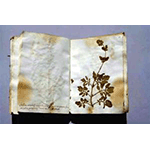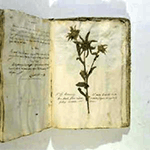Herbarium Universitatis Senensis
The Herbarium Universitatis Senensis, founded in 1860 by Giovanni Campani, was composed of a "General Herbarium", consisting mainly of samples collected by various botanists of the time or coming from the Italian Botanical Gardens, and a "Tuscan Herbarium". The two herbariums were subjected to a first rearrangement of the samples in 1916-17, while further rearrangement took place under the direction of Rodolfo Pichi-Sermolli and was completed by Vincenzo De Dominicis in 1968.
Today the Herbarium is formed of a historic collection and a modern one. The historic collection includes five important old herbariums, dating from the 18th and the 19th centuries, as well as collections of seeds, fruit, resin, rubber, roots, cross-sections and longitudinal sections of trunks and branches. The modern collection, consisting of dried materials collected by botanists starting from the early 20th century and continuously enriched, is arranged in systematic groups: seaweed, Bryophyta, macromycetes, lichens, phanerogams and vascular cryptogams. One of the Herbarium's most important activities today is that of loaning and exchanging samples.
****************************
Texts by Stefania Mangia
English translation by Catherine Frost
Last update 12/feb/2008





